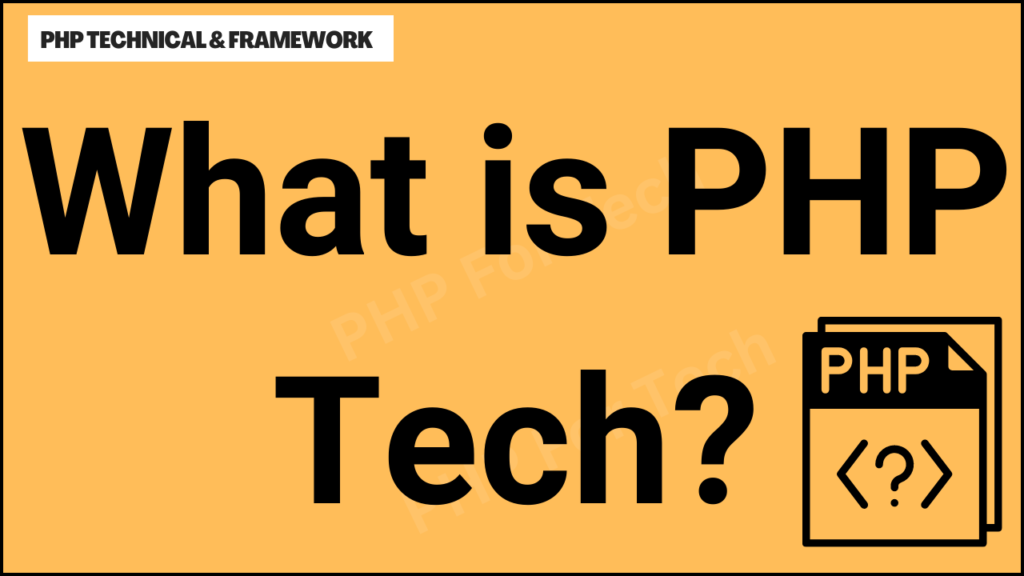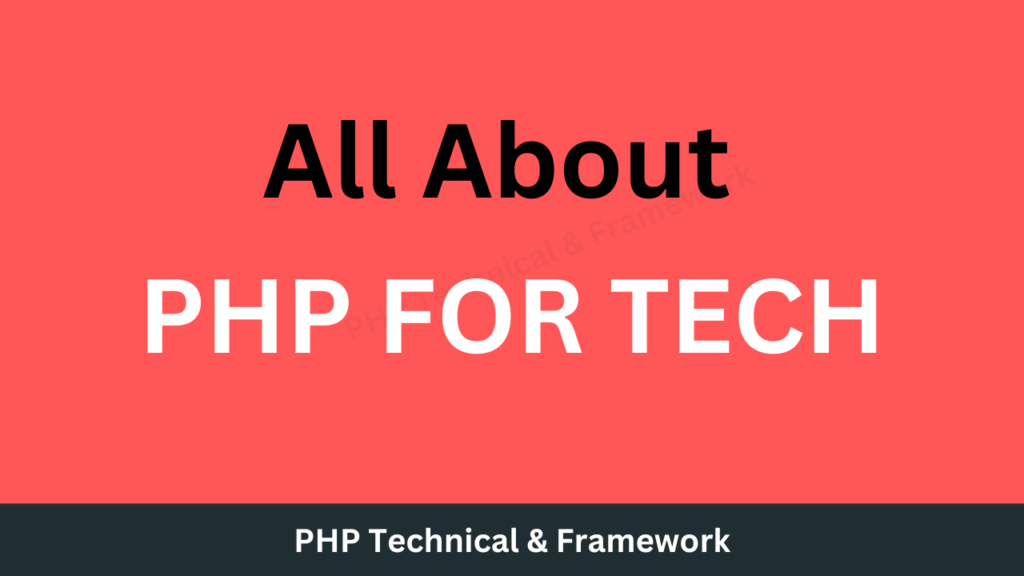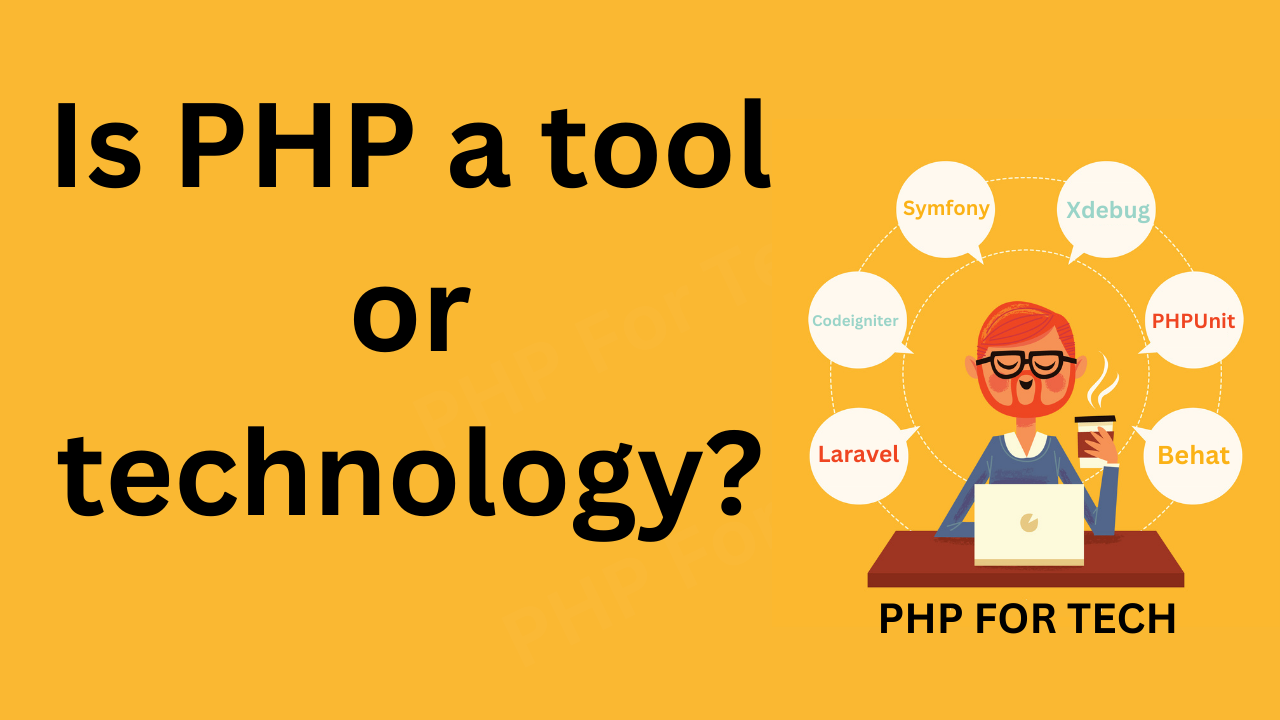Is PHP a tool or technology?
In the world of web development, PHP has long held a significant role. However, its categorization as either a tool or a technology isn’t always crystal clear. To understand its nature better, we’ll delve into the essence of PHP, its evolution, and its applications. By the end of this article, you’ll have a comprehensive grasp of whether PHP is more aptly described as a tool, a technology, or perhaps a bit of both.
Is PHP a tool or technology?
Defining Terms: Tool vs. Technology
Before we proceed, it’s crucial to establish the definitions of “tool” and “technology.” A tool is typically a specific software or program used to achieve a particular task or set of tasks. On the other hand, technology refers to a broader concept encompassing knowledge, methods, processes, and tools used to create products or provide services. Keeping these definitions in mind, let’s explore PHP’s nature.

PHP as a Tool
In its most basic form, PHP (Hypertext Preprocessor) is a scripting language designed for server-side web development. As a tool, PHP empowers developers to create dynamic and interactive web applications. It provides a wide array of functions, libraries, and frameworks that aid in various aspects of web development, such as database connectivity, form handling, and session management.
Consider PHP as a toolbox containing an assortment of tools that web developers can utilize to craft intricate websites and web applications. These tools include but are not limited to:
- Database Connectivity: PHP can interact with various databases, enabling developers to retrieve, manipulate, and store data seamlessly.
- Server-Side Scripting: PHP scripts run on the server before sending HTML to the browser, allowing dynamic content generation.
- Framework Support: PHP frameworks like Laravel, Symfony, and CodeIgniter provide pre-built components and architectural patterns for streamlined development.
PHP as a Technology
While PHP is undoubtedly a tool in the web developer’s arsenal, its role expands beyond mere tool status. PHP, along with its accompanying ecosystem, can be seen as a technology due to the larger impact it has on web development. The extensive support, community, and adoption of PHP make it a technology that shapes how web applications are built and maintained.

Consider these aspects that elevate PHP’s status to that of a technology:
- Community and Ecosystem: PHP boasts a massive developer community that contributes to its evolution. This community-driven approach results in continuous improvements, security updates, and the development of new tools and frameworks.
- Influence on Web Development: PHP’s popularity and versatility have influenced the evolution of web development practices and standards. Concepts such as server-side scripting and the LAMP stack (Linux, Apache, MySQL, PHP) are synonymous with PHP’s impact on technology.
- Application Diversity: PHP isn’t limited to small-scale projects; it powers some of the world’s largest websites and applications. Platforms like WordPress, Facebook, and Wikipedia are built using PHP, showcasing its adaptability and scalability.
The Interplay: Tool or Technology?
In the dynamic landscape of web development, PHP occupies a unique position that blurs the distinction between being a mere tool and a comprehensive technology. Its multifaceted nature enables it to straddle the line between these categories, showcasing its versatility and significance in the field.
Versatility as a Tool
At its core, PHP functions as a powerful tool that empowers developers to achieve specific tasks in web development. It’s like a versatile Swiss Army knife that can be employed for various purposes. In this aspect, PHP operates as a tool by offering:
- Server-Side Scripting: PHP’s primary role is to execute scripts on the server before sending the resulting HTML to the client’s browser. This enables dynamic content generation, form handling, and other server-side operations, making PHP an essential tool for enhancing user experiences.
- Function Libraries: PHP comes bundled with a vast collection of functions and libraries that developers can use to streamline common tasks. From handling file uploads to performing complex mathematical calculations, these pre-built functions save time and effort, reinforcing its status as a valuable tool.
- Framework Support: PHP frameworks such as Laravel, Symfony, and Yii provide developers with a structured and organized way to build applications. These frameworks are essentially sets of tools that offer predefined solutions to common development challenges, elevating PHP’s role as a tool that accelerates development processes.
Foundational Influence as a Technology
While PHP excels as a tool, its impact transcends this definition, solidifying its place as a foundational technology in web development. Here’s how PHP’s influence extends beyond tool status:
- Community-Driven Evolution: PHP has fostered a robust global community of developers, designers, and enthusiasts who contribute to its evolution. This collaborative effort ensures continuous updates, security enhancements, and the development of innovative features. This community-driven approach aligns with the essence of technology.
- Standardization and Best Practices: The widespread use of PHP has influenced the establishment of coding standards and best practices. This has led to the development of guidelines that enhance code readability, maintainability, and overall quality, thus shaping the technological landscape of PHP development.
- Ecosystem and Elevation: PHP has spawned a rich ecosystem of tools, extensions, and third-party libraries that further extend its capabilities. This ecosystem acts as a testament to PHP’s role as a technology that catalyzes the growth of a larger technological landscape.
The Balancing Act
In essence, PHP performs a balancing act between serving as a tool and embodying the characteristics of a technology. Its dual role is a testament to its adaptability, relevance, and enduring presence in web development. As a tool, it equips developers with practical solutions for immediate challenges. As a technology, it shapes the overarching framework within which these tools are applied.
Conclusion
In the debate of whether PHP is a tool or technology, the answer lies in recognizing its versatility and impact. PHP’s role extends beyond being a mere tool; it has transformed the way web applications are developed and maintained. As a tool, PHP equips developers with an extensive toolbox to create dynamic websites, while its influence as a technology shapes the broader realm of web development.
So, is PHP a tool or technology? It’s both—a tool that empowers developers and a technology that has left an indelible mark on the web development world. Whether you’re a developer leveraging its functionalities or an observer admiring its impact, PHP remains a cornerstone of modern web development.
Related Articles : –
